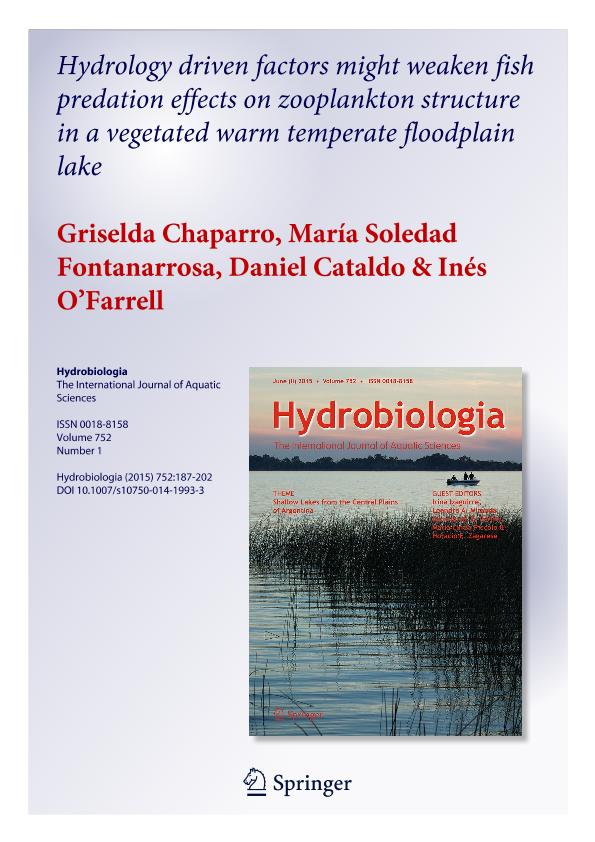Artículo
Hydrology driven factors might weaken fish predation effects on zooplankton structure in a vegetated warm temperate floodplain lake
Fecha de publicación:
06/2014
Editorial:
Springer
Revista:
Hydrobiologia
ISSN:
0018-8158
e-ISSN:
1573-5117
Idioma:
Inglés
Tipo de recurso:
Artículo publicado
Clasificación temática:
Resumen
Fish predation on microcrustaceans is of key importance for dominance of small zooplankters in warm shallow lakes, yet its role in floodplain environments remains poorly explored. We studied seasonal and spatial variations of the abundance, diet composition and feeding selectivity of small omnivorous–planktivorous fish in relation to zooplankton at different habitats in a floodplain lake of the Lower Paraná River. Fish catches were very high in spring and summer and scarce in autumn and winter, and their distribution varied among habitats in response to changes in refuge provision and oxygen concentration. Fish diet comprised zooplankton, phytoplankton and detritus, except in summer when Cyanobacteria prevailed; in general, cyclopoid copepods and cladocerans were positively selected. Macrozooplankton biomass was the highest in spring when calanoid copepods dominated, probably because their fast swimming velocity enabled their escape from predators. Lower macrozooplankton biomass in summer with low waters, was likely caused by harmful effects of Cyanobacteria or elevated salinity, while washing-out or dilution processes may explain macrozooplankton scarcity during cold seasons under low fish predation pressure. Our results indicate that in floodplain lakes, factors affected by or related to hydrology (salinity, Cyanobacteria development, dilution and washing-out processes) may have stronger influence than predation on zooplankton structure.
Archivos asociados
Licencia
Identificadores
Colecciones
Articulos(IEGEBA)
Articulos de INSTITUTO DE ECOLOGIA, GENETICA Y EVOLUCION DE BS. AS
Articulos de INSTITUTO DE ECOLOGIA, GENETICA Y EVOLUCION DE BS. AS
Citación
Chaparro, Griselda Noemí; Fontanarrosa, María Soledad; Cataldo, Daniel Hugo; O'farrell, Ines; Hydrology driven factors might weaken fish predation effects on zooplankton structure in a vegetated warm temperate floodplain lake; Springer; Hydrobiologia; 752; 1; 6-2014; 187-202
Compartir
Altmétricas




